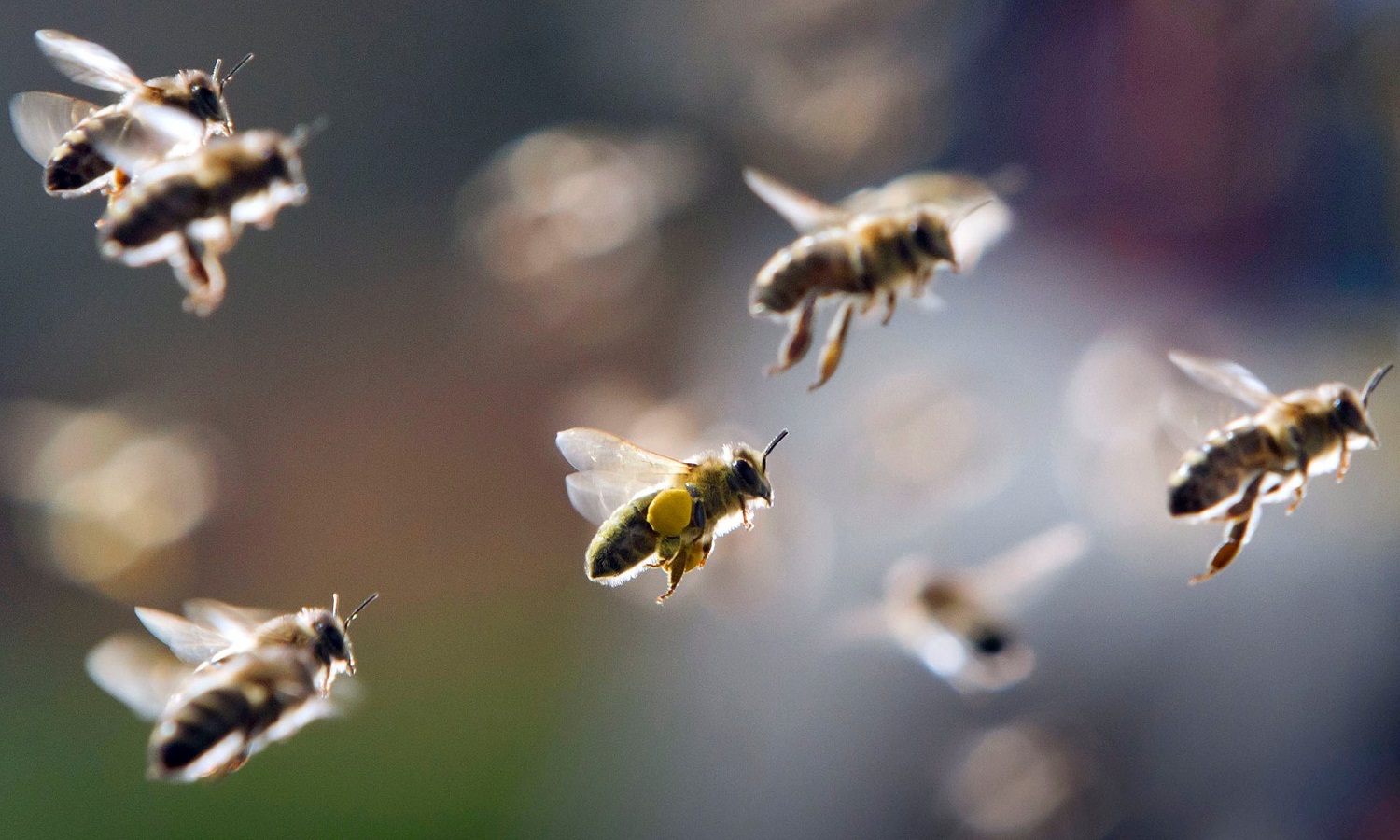Bees would suffer from Brexit, say campaigners Green groups warn of UK’s opposition to EU bans on harmful pesticides and promises by the Leave campaign to cut nature protection laws

Brexit would be bad for Britain’s bees, according to campaigners, who point to the UK government’s opposition to EU bans on harmful pesticides and the desire of figures in the Leave camp to cut nature protections. Bees and other pollinators are vital to producing food but have been harmed by loss of habitat, disease and pesticides. The EU banned three neonicotinoid pesticides in 2013 in the face of strong opposition from UK ministers. The UK government allowed an “emergency” exemption to the ban in 2015 and is now considering another. A leading Brexit campaigner George Eustice, who is also the farming minister, recently told the Guardian the UK could develop a more flexible approach to environmental protection free of “spirit-crushing” Brussels directives if it votes to leave. “With Brexiteers promising victory parties lit by bonfires of so-called red tape – including our vital nature protections – a future outside of Europe doesn’t look bright for Britain’s bees or our environment as a whole,” said Sam Lowe from Friends of the Earth. “If protection of bee’s habitats and food sources are watered down and bee-harming pesticides are reintroduced in Britain, there could be devastating consequences for Britain’s bees and for the whole food chain.” Matt Shardlow, from the invertebrate conservation charity Buglife, said: “The EU has got a recent history of providing resolute protection for bees and pollinators.” EU nature rules have been vital for protecting the places bees live and the flowers they feed upon, according to campaigners, including Salisbury Plain and parts of the South Downs. It is well established that neonicotinoids cause harm to bees but there is limited evidence that they cause colonies or populations to decline. Further evidence of harm is building up with the publication of new scientific research: a study published this week showed one neonicotinoid harmed foraging, navigation and social communication in honeybees. UK ministers permitted a temporary lifting of the EU ban in 2015 for use on oilseed rape crops, but gagged its own pesticide advisers in order to prevent campaigners lobbying on the issue. A new application for an emergency lifting of the ban was rejected earlier in 2016, but the National Farmers Union have made a further bid, which wasconsidered behind closed doors by the pesticide advisers on Tuesday. The NFU, which says farmers are better off in the EU, argues that neonicotinoids are “absolutely vital” in protecting oilseed rape crops from pests. A cross-party group of 25 MPs has written to the environment secretary, Liz Truss, to complain about the secrecy of the decision making. “Sound science is publicly challengeable science,” they wrote. “It is not a body of experts who say ‘we will not allow anyone to see the evidence we have for placing the public at risk, but we are eminent persons so trust us’.” More than 300,000 people have signed a 38 Degrees petition to keep the neonicotinoid ban and more than 100,000 have backed another calling for greater transparency. “The lack of transparency is a complete scandal and biases the system in favour of pesticide firms, with the public and campaigners unable to scrutinise the case being made for their use,” said Dave Timms at Friends of the Earth. “This is bad for democracy, bad for science and bad for our bees.”
Read More: https://www.theguardian.com/environment/2016/jun/15/bees-would-suffer-from-brexit-say-campaigners

